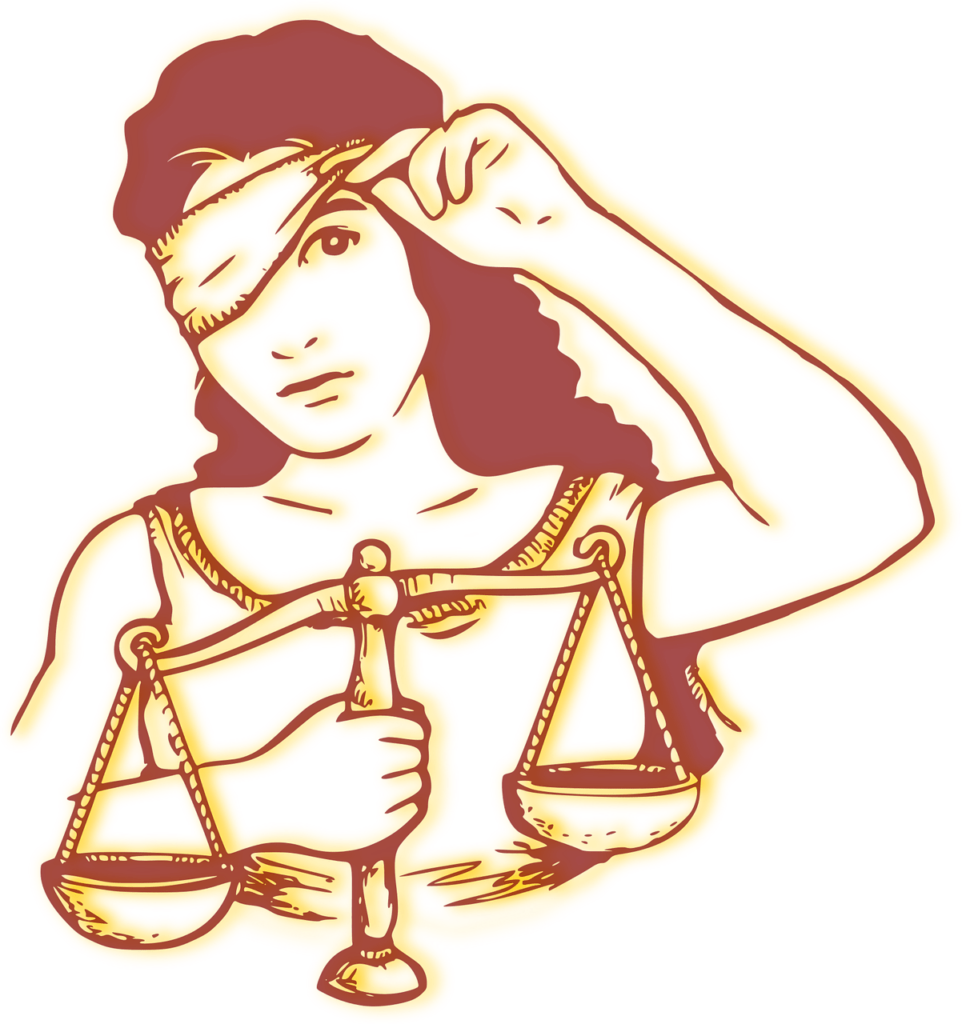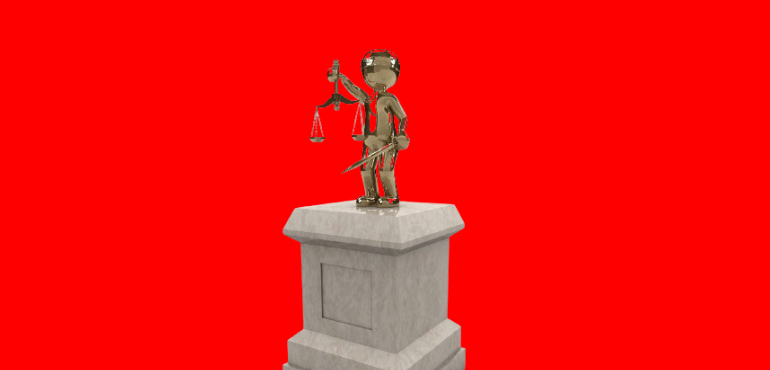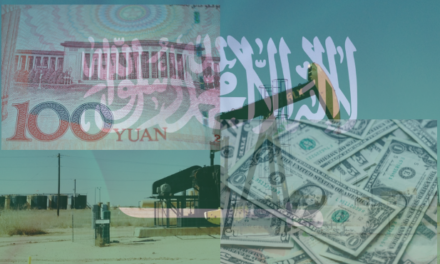The weaponisation of the judiciary refers to the strategic manipulation of judicial systems for political gains, undermining their independence and impartiality.
Definition of Weaponisation of the Judiciary in Politics
- Judicial weaponisation involves using the judiciary as a tool for political gains, manipulating it to serve partisan or personal interests.
- This manipulation compromises the judiciary’s role as an impartial adjudicator of justice.
Forms of Weaponisation
- Politically Influenced Judicial Appointments: Appointing judges who align with specific political agendas rather than based on merit.
- Removal of Judges for Unfavorable Rulings: Dismissing judges who make decisions that do not favour those in power.
- Frivolous Legal Actions: Filing baseless lawsuits to harass and financially drain opponents.
- Suppression of Dissent: Using the judiciary to silence critics and opposition through unjust legal actions.
- Obstruction of Judicial Processes: Delaying or impeding judicial proceedings to protect political interests and prevent accountability.
Thesis Statement
- Core Argument:
- Judicial weaponisation is a severe threat to democracy and the rule of law, as it undermines the independence and neutrality of the judiciary, essential for upholding justice.
Politically Motivated Appointments and Removals
The weaponisation of the judiciary refers to the strategic manipulation of judicial systems for political gains, undermining their independence and impartiality.
This phenomenon can manifest in various ways, including politically motivated judicial appointments and removals, the misuse of legal processes to target opponents, suppression of dissent, and the obstruction of judicial proceedings.
These practices not only compromise the rule of law but also pose significant threats to democracy. When the judiciary is weaponised, it ceases to function as a neutral arbiter of justice and instead becomes a tool for consolidating power.
Impact of Politically Driven Judicial Appointments
- Influence on Judicial Decisions:
- Judges appointed based on political loyalty may prioritise the interests of those who appointed them over impartial justice.
- This leads to a judiciary that is more likely to support the ruling party’s agenda rather than uphold the law fairly.
- Undermining Judicial Independence:
- The judiciary’s role as an independent body meant to check the other branches of government is compromised when appointments are politically motivated.
- It creates a perception that judicial decisions are influenced by politics rather than legal principles.
Consequences of Removing Judges for Unfavorable Rulings
- Intimidation and Compliance:
- Judges may fear removal if their decisions do not align with the interests of political leaders, leading to self-censorship and biased rulings.
- This erodes the judiciary’s ability to function independently and impartially.
- Examples:
- Poland:
- Government reforms have led to the appointment of judges who are loyal to the ruling party and the dismissal of those who are not.
- This has raised concerns about the erosion of judicial independence and the consolidation of political power.
- Turkey:
- A significant number of judges have been purged under accusations of disloyalty, undermining the judiciary’s independence and credibility.
- Poland:

Frivolous Lawsuits and Investigations
Another tactic of judicial weaponisation involves the use of frivolous lawsuits and investigations to harass and undermine political opponents.
These legal actions, often lacking in substantive merit, are designed to drain the resources and distract the attention of those targeted, impeding their ability to effectively engage in political or civic activities.
The financial burden of defending against baseless lawsuits can be significant, potentially bankrupting individuals or organisations.
The emotional toll can be equally devastating, as prolonged legal battles create stress and uncertainty.
Use of Legal Tactics to Undermine Opponents
- Harassment through the Legal System:
- Political opponents are often targeted with baseless lawsuits designed to divert their attention and resources away from their activities.
- These lawsuits are not meant to win in court but to create a legal and financial burden on the opponents.
- Impact on Individuals and Institutions:
- Financial Toll:
- Defending against frivolous lawsuits is costly and can deplete the resources of individuals and organisations, potentially leading to financial ruin.
- Emotional Stress:
- The ongoing stress of dealing with legal battles can have significant emotional and psychological impacts, leading to anxiety and burnout.
- Financial Toll:
High-Profile Cases
- Examples:
- Russia:
- Opposition leaders frequently face legal challenges and lawsuits that appear to be politically motivated, aimed at silencing dissent and discouraging political participation.
- These cases are often seen as a tool to harass and weaken opponents rather than genuine legal disputes.
- Russia:
Suppression of Dissent and Opposition
The judiciary can also be weaponised to suppress dissent and silence opposition.
Governments may use the courts to target critics, journalists, and political activists, often on charges of defamation, sedition, or terrorism that are either fabricated or exaggerated. By doing so, they aim to stifle free expression and limit political participation.
This suppression has a chilling effect on freedom of speech and the press, as individuals and media outlets may self-censor to avoid legal repercussions.
Silencing Critics through Judicial Means
- Judicial Suppression Tactics:
- Governments use the judiciary to prosecute critics, activists, and journalists on charges such as defamation, sedition, or terrorism.
- These charges are often exaggerated or fabricated to discredit and intimidate the opposition.
- Impact on Democratic Freedoms:
- Freedom of Expression:
- The threat of legal action creates a chilling effect, leading to self-censorship among individuals and the media.
- Fear of repercussions stifles open discussion and critical analysis of government policies.
- Political Participation:
- Suppressing dissent reduces the space for political debate and diminishes the ability of citizens to engage in the democratic process.
- Freedom of Expression:
Notable Instances
- Examples:
- Hungary:
- The judiciary has been used to target journalists and opposition figures, leading to a climate of fear and restricted media freedom.
- Legal actions against critics have been used to stifle dissent and suppress alternative viewpoints.
- Hungary:
Delaying and Obstructing Judicial Proceedings
Delaying and obstructing judicial proceedings is another form of weaponisation that serves to protect political interests. By dragging out legal processes, those in power can effectively avoid accountability and continue to operate without scrutiny.
Such tactics undermine the rule of law by creating a perception that justice is not being served in a timely or fair manner.
This erodes public trust in the judiciary, as people begin to see the legal system as biased or inefficient.
Protecting Political Interests through Legal Delays
- Mechanisms of Obstruction:
- Political figures can manipulate the judicial system to delay or obstruct proceedings in cases that could threaten their interests.
- This includes tactics such as filing unnecessary motions, seeking continuous adjournments, and exploiting procedural loopholes.
- Impact on the Rule of Law:
- Erosion of Justice:
- Delays in legal proceedings undermine the timely delivery of justice, creating a backlog of cases and a perception of inefficiency.
- People affected by delayed cases lose faith in the system’s ability to protect their rights and deliver fair outcomes.
- Public Distrust:
- Prolonged legal processes contribute to a lack of confidence in the judiciary, as citizens perceive it as biased or unable to function effectively.
- Erosion of Justice:
Case Studies
- Examples:
- Venezuela:
- Politically sensitive cases often face significant delays, undermining the rule of law and contributing to a broader crisis of governance and legitimacy.
- This creates an environment where legal recourse is seen as unreliable and biased towards those in power.
- Venezuela:
Consequences for Democracy and Rule of Law

The weaponisation of the judiciary has severe consequences for democracy and the rule of law.
When the judiciary is co-opted for political purposes, it loses its ability to function as an independent check on power. This undermines the principle of separation of powers, which is fundamental to democratic governance.
Key Risks of Judicial Weaponisation
- Threats to Democratic Governance:
- Judicial weaponisation undermines the separation of powers, leading to a concentration of power in the hands of the ruling party or leader.
- It weakens the judiciary’s role as an independent arbiter and protector of citizens’ rights.
- Diminishing Judicial Independence:
- When the judiciary is manipulated for political purposes, it loses its ability to act independently and impartially.
- This undermines public confidence in the judicial system and its capacity to uphold justice.
- Erosion of Public Trust:
- The perception of a biased and politically influenced judiciary leads to a lack of trust in the legal system.
- Citizens become disillusioned with the ability of the judiciary to deliver fair and impartial justice.
Increased Political Polarisation and Instability
- Widening Divisions:
- Weaponising the judiciary exacerbates political divisions, leading to increased polarisation and social instability.
- It creates a cycle of mistrust and antagonism between different political groups, undermining social cohesion.
Preventing Weaponisation of the Judiciary
To prevent the weaponisation of the judiciary, it is crucial to uphold judicial independence.
This requires ensuring that judicial appointments are based on merit rather than political loyalty and that judges are protected from undue political influence.
Upholding Judicial Independence
- Essential Measures:
- Judicial appointments should be based on merit and qualifications, not political loyalty or affiliation.
- Judges should be insulated from political pressures and have secure tenure to ensure impartiality.
- Protecting Judges from Political Influence:
- Laws and policies should safeguard judges from retaliation for their rulings, ensuring they can make decisions based on legal principles rather than political considerations.
Promoting Transparency and Accountability
- Key Actions:
- Transparent Appointments:
- Implementing clear, transparent procedures for judicial appointments helps prevent political interference and ensures that judges are chosen based on their expertise and integrity.
- Accountability Mechanisms:
- Establishing mechanisms to hold judges accountable for unethical behavior or misconduct, while protecting them from undue political pressure, maintains the integrity of the judiciary.
- Transparent Appointments:
Fostering a Culture of Legal Respect
- Cultural Shifts:
- Promoting a culture that respects the rule of law and values judicial independence is crucial for preventing judicial weaponisation.
- Education and public awareness campaigns can help instil respect for legal processes and judicial integrity.
Role of Civil Society and Media
- Public Engagement:
- Civil society organisations and the media play a critical role in monitoring judicial practices and exposing attempts to manipulate the judiciary.
- Public scrutiny and activism are essential in holding the judiciary accountable and maintaining its independence.
In Conclusion
The weaponisation of the judiciary represents a significant threat to democracy and the rule of law.
By undermining judicial independence and compromising the impartiality of the legal system, such practices erode public trust and weaken democratic institutions.
Restating the Thesis
- Summary:
- Judicial weaponisation poses a significant threat to democracy and the rule of law by undermining the independence and impartiality of the judiciary.
- It creates a legal system that serves political interests rather than justice.
Key Points Recap
- Highlights:
- Politically motivated appointments and removals of judges erode the judiciary’s impartiality and independence.
- Frivolous lawsuits and investigations are used to harass and weaken opponents, leading to financial and emotional distress.
- Judicial suppression of dissent curtails freedom of expression and limits political participation.
- Delaying and obstructing judicial proceedings protects political interests and undermines public trust in the legal system.
Call to Action
- Protecting Judicial Integrity:
- It is crucial to remain vigilant against attempts to weaponise the judiciary and to take proactive steps to safeguard its independence.
- Civil society, the media, and the public must work together to ensure that the judiciary remains an impartial and effective protector of justice and democratic values.
The weaponisation of the judiciary poses a significant threat to the integrity of democratic institutions and the rule of law.
By compromising judicial independence and impartiality, such practices erode public trust and create a legal system that serves political interests over justice.
To safeguard democracy, it is imperative to protect the judiciary from political manipulation, ensuring it remains a neutral arbiter of justice.
Let us remain vigilant and committed to upholding the principles of fairness, transparency, and judicial independence.



















